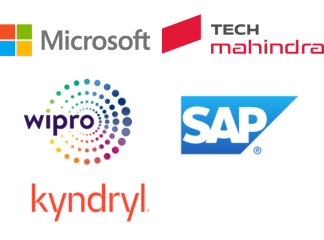How EV Trends Are Influencing Dealer Management System Requirements

Electric vehicles are driving structural shifts across the automotive industry. Traditional manufacturing timelines are evolving to accommodate new powertrain technologies. Supply chains are being reconfigured around batteries, semiconductors, and rare earth materials. Dealerships are rethinking sales models, while service teams must adapt to diagnostics, battery maintenance, and software-driven updates.
As more EVs enter the market and manufacturers grow their electric portfolios, dealerships are facing new operational and customer experience challenges. The systems they’ve relied on, especially Dealer Management System platforms, were mostly set up for traditional fuel vehicles. But EVs come with their own way of working, the servicing is different, the tech is different, and what customers expect is changing too. Dealerships need a platform that actually aligns with how EVs operate.
In growing EV markets like India, the Middle East (UAE, Saudi Arabia, Qatar, Kuwait, Oman, Bahrain), and Mexico, these shifts are accelerating dealership modernization strategies and pushing demand for EV-ready systems.
8 Ways EVs Are Transforming Dealer Management Systems
1. Inventory Management Is Becoming More Detailed
With EVs, inventory management involves more than engine type and variant. Dealerships now track battery capacity, charging standards, software versions, and energy ratings. Even within the same model, there can be variations in range and charging options.
For example, the Tata Nexon EV and Tiago EV have different battery configurations and range expectations. A capable DMS ensures sales teams can quickly access these details, helping them offer precise guidance and build customer trust.
2. Service Workflows Are Shifting
EVs require a different approach to after-sales service. They have fewer mechanical parts but rely heavily on electronics and software. This means that servicing involves diagnostics, battery health checks, and updates rather than oil changes or spark plug replacements.
Dealerships need tools that help them schedule certified technicians, track high-voltage system inspections, and manage recall updates for EV firmware. A DMS that supports EV-specific workflows can reduce delays and improve service quality.
3. Charging Infrastructure Introduces New Processes
Some dealerships are offering EV charging as a service. This adds a new layer of data, such as electricity consumption, slot availability, and user billing. These functions need to be integrated with dealership systems.
If a service centre has multiple chargers, the DMS should allow staff to monitor charger usage, plan appointments based on charging time, and manage customer flow. Without this, dealerships may face scheduling conflicts or resource bottlenecks.
4. Buyer Preferences Are Evolving
Customers looking for EVs ask different questions. They want to know about range, charging networks, government incentives, and battery warranties. Many are first-time EV buyers and expect detailed answers and easy access to information.
The DMS must support this experience by helping sales teams share documents, calculate subsidies, and offer digital comparison tools. The goal is to simplify decision-making and improve the buying process for customers who are new to electric mobility.
5. Telematics and Data Visibility Are More Important
Modern EVs generate large volumes of data. This includes battery performance, usage trends, software versions, and driving behaviour. OEMs use this data to improve products and customer support. Dealerships also need access to these insights.
If the DMS is set up right, it can pull up useful info that helps with things like deciding on repairs, figuring out resale values, and reaching out to customers. For example, if the battery starts showing signs of wear, the system could flag it early so the dealer can call the customer ahead of time. That kind of heads-up usually makes customers feel looked after.
6. Compliance and Incentive Management Require Automation
Many regions offer financial incentives to encourage EV adoption. These incentives often involve multiple steps, including document collection, eligibility checks, and digital submission. Manual handling creates delays and errors.
Dealerships benefit from a DMS that supports automated workflows for subsidy tracking and government reporting. In India, for example, the FAME-II scheme has specific compliance requirements that are easier to manage with built-in validation tools.
7. Used EVs Present New Valuation Challenges
The resale of EVs depends on different parameters. Traditional mileage tracking is no longer enough. Buyers are more interested in battery health, charging history, and software status.
A DMS should include tools that support battery diagnostics and track service records for EVs(1). If a vehicle has been well-maintained, it can hold significant value, even after years of use. Accurately capturing and presenting this data is essential for pricing and resale.
8. Dealership Teams Need Updated Interfaces and Training
EV workflows are unfamiliar to many sales and service professionals. Teams need systems that guide them through new processes and help them learn as they work. A DMS with a clean interface, visual aids, and role-based features can simplify the transition.
Some platforms are beginning to offer built-in product education tools and support for remote diagnostics. These features reduce training time and make operations smoother for both new and experienced staff.
Conclusion
EV adoption is rising steadily. As more customers choose electric vehicles, dealerships must rethink how they manage operations and serve buyers. The traditional structure of DMS platforms does not support the full range of EV requirements.
Dealers need systems that support detailed inventory data, software tracking, energy usage, battery performance, and updated customer workflows. These capabilities are essential for ensuring smooth operations and building long-term relationships with EV buyers.
The Next–gen Dealer Management System reflects a dealership’s readiness for the next phase of automotive retail.
Excellon DMS is built to support this transition. With robust EV-ready features, real-time data integrations, and tools tailored for today’s evolving dealership needs, Excellon DMS helps automotive networks stay future-ready while maintaining operational efficiency.
You may also Like

How to Improve After-Sales Service & Customer Satisfaction with Dealer Management System
After-sales service is no longer a support function that begins after product delivery in the automotive sector, where products involve long-term use and significant investment, customers expect more than a one-time sale.…

How a Modern DMS Can Boost Sales & Customer Satisfaction in the Middle East
The automotive retail industry in the Middle East (UAE, Saudi Arabia, Qatar, Kuwait, Oman, Bahrain) is built around long-term relationships, brand legacy, and high customer expectations. From exclusive distributorships to multi-brand...

Auto inventory management refers to the process of overseeing, tracking, and controlling the stock of vehicles, parts, and accessories within the automotive industry. This includes managing everything from vehicle parts to finished goods…


